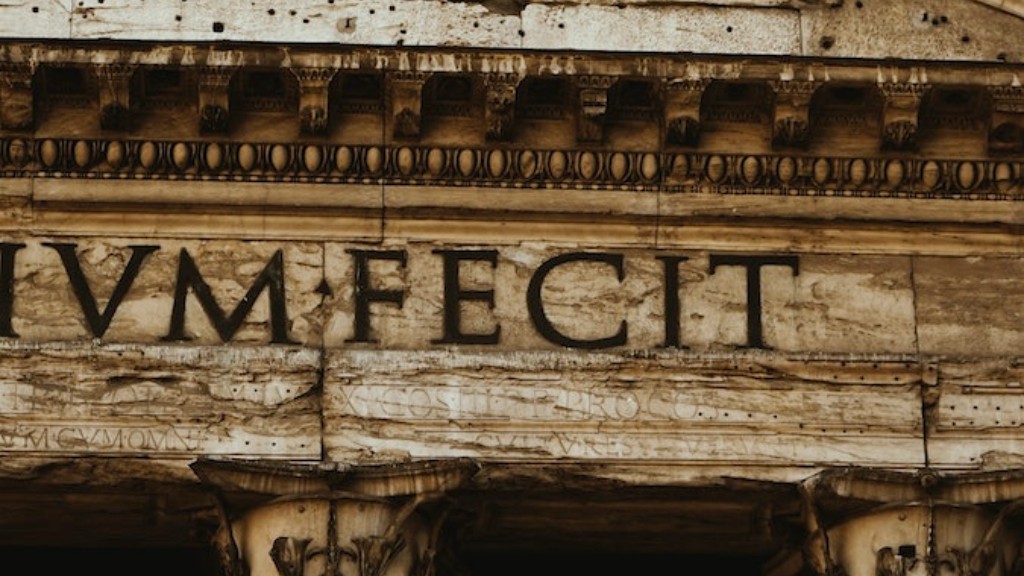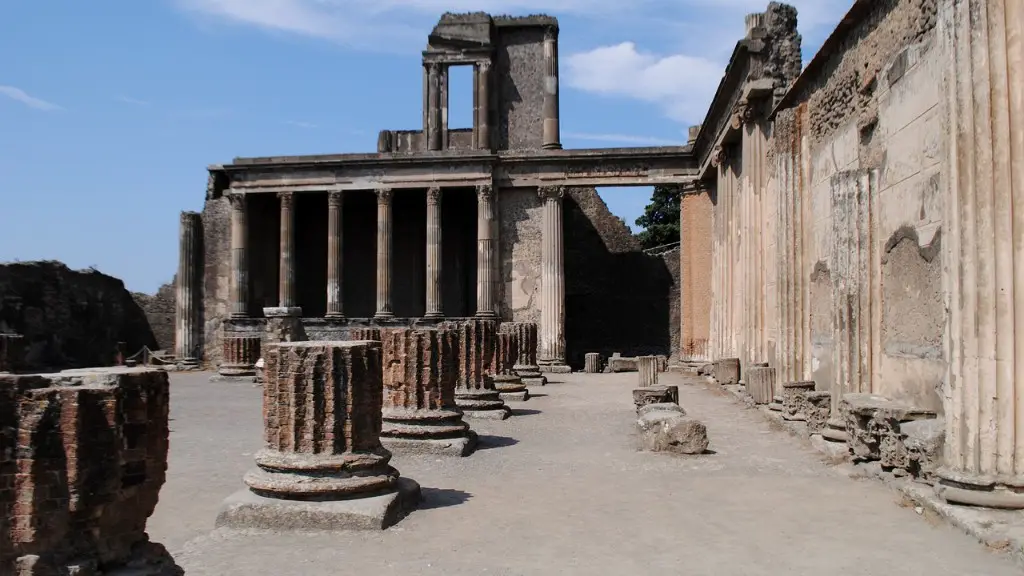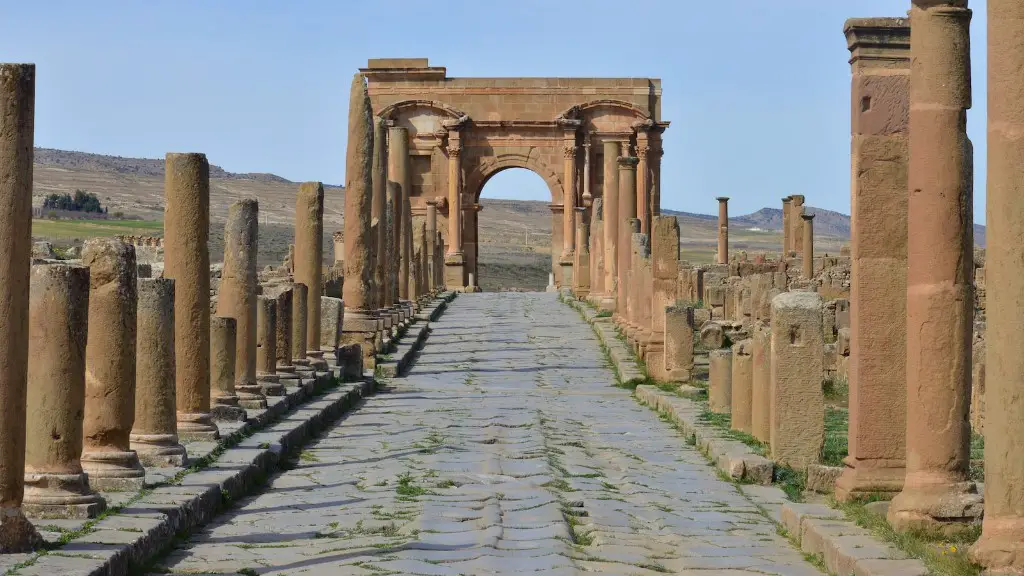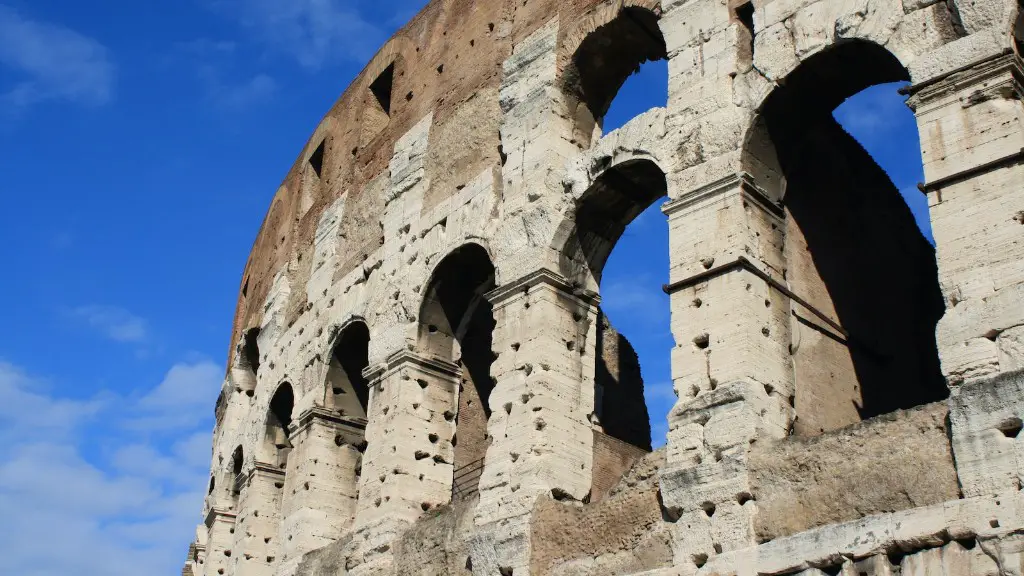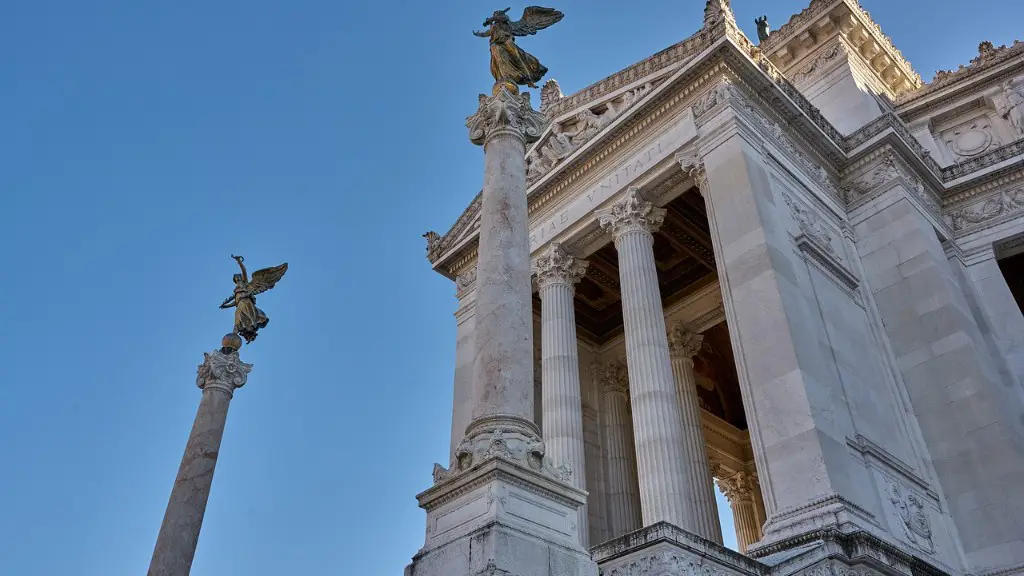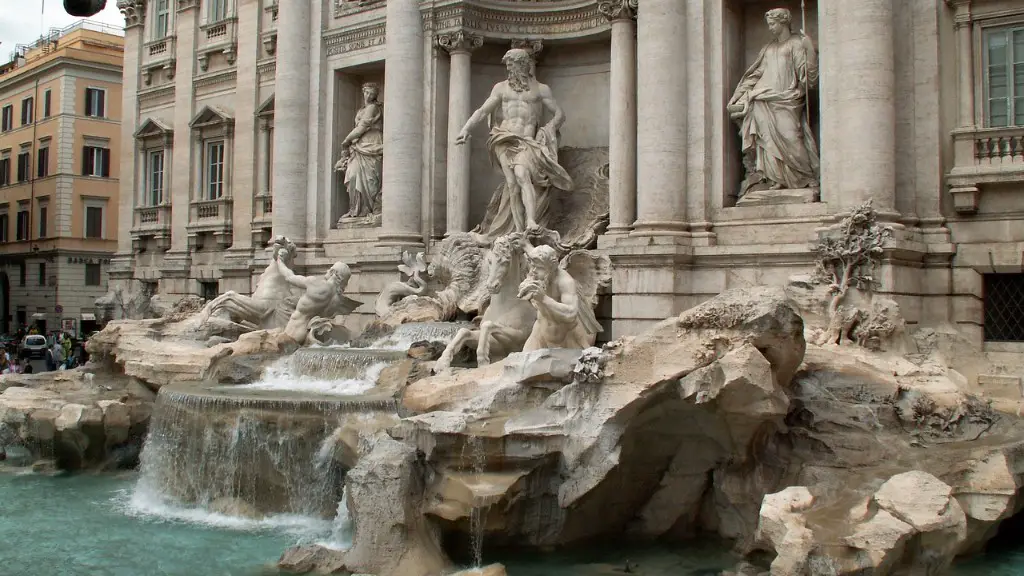Understood as a Symbol of Power
Ancient Rome was an empire of immense might and influence. Its monumental monuments, roads, and reservoirs still existence today serves as a reminder of its success story. To understand why Rome was so successful, one must first look back to its time of greatness. Though vast in size and rich in resources, Rome was ultimately built upon the foundation of law, governance, and its many accomplishments in trade and economics. This foundation put in place the necessary structures that allowed Rome to expand and grow.
The ability of Rome to strategically control its territories also played a role in why it was so successful. Roman leaders knew how to take advantage of the resources there and how to manipulate the different provinces to serve the needs of Rome. For example, Rome was able to acquire wealth by increasing taxes and tightening the control of its provinces. This was made possible through a system of taxation and trading policies which allowed the Roman Empire to accumulate wealth over the years.
Military power was also a major factor in Rome’s success. Although Rome was not the largest or strongest power of its time, its army is well known for being ruthless and effective. Headed by an incredibly powerful ruler, the Roman army was able to achieve conquest over a large number of opponents and was even able to expand the Roman Empire to become one of the most powerful forces of the ancient world.
Rome was also highly favored by its gods, which allowed it to conquer lands and expand its power significantly. The ancient Roman gods protected them from the many threats they faced, granting them luck and protection whenever it was needed. This faith in their religion served as a driving force that allowed Rome to achieve so much.
In addition to its luck and military prowess, Rome was also successful due to its social structure. The culture was hierarchical with well-defined social classes that provided structure and stability within the Empire. This structure allowed Rome to maintain its power for a longer than normal amount of time because it had a well-made system of leaders and followers.
Finally, Rome was also successful due to its culture and values. Ancient Roman values such as loyalty, respect, and honor were instrumental in helping the Empire succeed and maintain its power for centuries. This sense of culture and values allowed Rome to remain strong for so long and even inspired other later empires to adopt parts of the Roman culture.
Promoting Language, Art and Literature
The innovative and progressive spirit that Ancient Rome is known for throughout history can also be seen in their promotion of language, art and literature. Its impact on shaping of modern language and the Latin language itself has been instrumental in subsequent civilisations such as the Roman Empire. Latin has had a significant influence on modern languages, with many English words being derived from Latin, as well as much of the terminology and vocabulary used in the sciences.
The literature produced in Ancient Rome also has had a lasting impact on the world’s literature. Amongst the earliest texts produced in the Roman Empire are works such as Virgil’s Aeneid and Caesar’s commentaries, both of which are still studied and are considered to be some of the best works of antiquity. Rome has also been known for its art, with many famous pieces of art throughout history belonging to the Roman Empire. Its influence is evident in the genre of realism dominant in Roman art. There is also evidence of the influence of Roman art in religious and political architecture, spanning centuries.
A key factor to the success of Roman art and literature was the establishment of various institutions, academies, and schools such as the Imperial Library. These institutions were established in order to promote the understanding and knowledge of language, arts and literature. This paved the way for art and literature to thrive in Ancient Rome, with the works Romans produced reaching all parts of the empire and inspiring other societies.
The abundance of knowledge and learning that Rome was known for was invaluable and helped the empire to flourish. Rome was able to develop and foster its literature, art, and language and spread it to other parts of the world. This expansion not only kept Rome’s culture alive but also advanced many of the other budding civilizations of the time.
Promoting Commerce, Technology and Science
Ancient Rome was not only successful in the realm of language, art and literature, but it also was an ambitious player when it came to science, technology and commerce. In terms of commerce, the Roman Empire had a vast trade network that stretched throughout most parts of Europe and North Africa. This network allowed the Romans to acquire resources and goods from many different areas of the world.
The massive amount of resources Rome had access to allowed the empire to develop the technology of their time. They created advanced machinery, weapons and engineering works such as aqueducts, catapults and siege engines. Roman engineering was so advanced, in fact, that it was nearly unmatched by other civilizations of the time.
The Roman Empire was fully invested in advancing their knowledge of science. They created schools to promote scientific knowledge as well as libraries to promote reading. This helped the Roman Empire become one of the most scientifically advanced civilizations during the time. Roman scientists created many works that are still admired today, including the works of Ptolemy, the famous mathematician and astronomer.
In short, Ancient Rome was an incredibly successful and powerful empire. Their empire was full of innovative minds who used science and technology to develop the world in their own way. They created a massive empire with a vast trading network and a military powerful enough to extend Rome’s reach even further. Most importantly, they established a governance structure and laws that allowed them to maintain power and stability within their borders. This mix of success factors allowed Rome to continue its reign as one of the most influential and powerful empires of the ancient world.
Rome’s Impact Over Time
Today, Ancient Rome is remembered as one of the greatest empires to ever exist. Its presence can still be felt in the modern world with the ways it has shaped culture, laws, and architecture to name just a few. Without Rome’s success and power, many of the advancements and customs we experience in modern society would not have been possible.
The concept of democracy that we know today is based off of the Roman Republic’s government and system of laws. Rome has even shaped language and literature, with the Latin language being the basis for many of the languages we hear today such as Italian, French, Spanish and Portuguese. Their architecture has also continued to influence society today, with monuments such as the Colosseum serving as a reminder of the grandeur of Rome’s reign and the strength of their engineering designs.
Rome’s power has also had a profound effect on the church. The Roman Catholic Church is based off of a Roman structure, and its influence is still felt throughout the western world. This influence is so powerful that some of the most powerful leaders in Europe in the past still had to answer to the Pope and the laws of Rome.
In conclusion, Rome was one of the most powerful empires of its time. Its luck, military power, social structures, values, innovative spirit and expansion to the rest of the world were instrumental in its success and are still felt even today. From democracy to law and language, Rome has not only impacted us for centuries but also continues to shape our modern world.
Encouragement of Education and Society
In order for a society to be successful and to thrive, there needs to be a strong focus on education, values, and the overall well being of its citizens. Ancient Rome was very successful in this regard, providing an educational and moral foundation that still impacts our lives today. This focus on education and the encouragement of education was essential to the success of Rome.
Rome developed a system of elementary schools for children, and the scholar Quintilian wrote about the importance of teaching Roman youth the classics. This focus on educating its citizens allowed Rome to avoid the social unrest that other empires of the time had to contend with. This focus on learning also allowed Rome to become a leader in science and technology, giving them the tools they needed to develop things like aqueducts and elaborate road systems.
Rome was also a major player in societal values. They encouraged its citizens to practice frugality, self-restraint, and piety when it came to religions. This focus on morality and principles was instrumental in helping Rome stay strong. Rome was very focused on honor, integrity, and glory, allowing their citizens to have a sense of pride in Rome and helping the Legionaries fight with honor and dedication.
Additionally, Rome was also known for its public works initiatives. Many of the great monuments of Rome were funded by the Roman government and acted as a reminder of its cultural achievements to its own people as well as to other civilizations. This allowed Rome to become a major player in the world and to become known for its art and engineering achievements.
In conclusion, the success of Ancient Rome can be seen in their focus on education, values, and culture. Through their investments in education, culture and society, Rome was able to become one of the most powerful empires of its time and to shape the evolution of the world for centuries to come.
Tolerance and Acceptance of Diversity
In addition to its focus on education and societal values, Ancient Rome was also well known for its openness to different people and cultures. This acceptance of diversity was instrumental in Rome’s success and also enabled it to remain a powerful force of influence in the ancient world.
For example, under Roman rule, slaves were allowed to gain a certain level of freedom, albeit still far from equal to their free Roman counterparts. They were allowed some rights such as the right to own property and even to engage in commercial activities. This allowed Rome to draw on the talents of many different people and allowed for the input of innovative ideas and thought.
Rome was also known for its tolerance of different cultures and religions. This was especially true when it came to the Jews, who Rome allowed to keep their religious practices as long as they paid their taxes. This acceptance and freedom of religion was a major part of Rome’s success and helped it stay cohesive as a society.
Rome also allowed different cultures to absorb and adopt aspects of the Roman culture without forcing those cultures to change their own ways and beliefs. Rome’s openness to different cultures allowed them to amass knowledge and resources that they otherwise would not have access to, helping them develop an understanding of the world and its many civilizations.
In conclusion, Rome’s success was due in part to its acceptance and openness to different cultures. This acceptance allowed Rome to draw upon the talent and brilliance of many different people and cultures, allowing it to expand its influence throughout the world and to remain a powerful empire.
